April 5 stands as one of history’s most eventful days, witnessing the rise and fall of empires, groundbreaking discoveries, and moments that shaped our modern world across centuries of human achievement.

Politics and Government Events on April 5
1933 – Franklin D. Roosevelt Signs Executive Orders

President Roosevelt signed two pivotal executive orders that transformed American society during the Great Depression. Order 6101 established the Civilian Conservation Corps, while Order 6102 forbade citizens from hoarding gold.
These bold measures demonstrated Roosevelt’s commitment to economic recovery and federal intervention. The orders marked a fundamental shift in government’s role in American economic life.
1933 – Andorran Revolution Begins
Young Andorran revolutionaries stormed the Casa de la Vall and forced the government to accept democratic reforms. Their demands included universal male suffrage and genuine democratic elections.
This bloodless revolution transformed Andorra from a feudal principality into a modern democratic state. The occupation marked the beginning of Andorra’s journey toward full sovereignty.
1946 – Soviet Forces Leave Danish Territory
Soviet troops ended their year-long occupation of the Danish island of Bornholm. The withdrawal marked a rare instance of voluntary Soviet retreat during the early Cold War period.
Denmark regained full sovereignty over its territory without armed conflict. This peaceful resolution contrasted sharply with Soviet actions in Eastern Europe.
1992 – Fujimori Dissolves Peruvian Congress
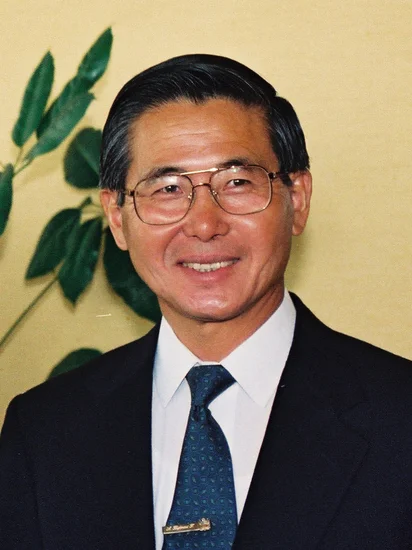
President Alberto Fujimori dissolved Peru’s congress through military force in a dramatic constitutional crisis. The autocratic move eliminated legislative opposition to his anti-terrorism policies.
International condemnation followed this assault on democratic institutions. Fujimori’s self-coup concentrated power in the executive branch and suspended constitutional guarantees.
1976 – China’s April Fifth Movement
The April Fifth Movement erupted in China, leading to the significant Tiananmen Incident. Thousands of protesters gathered to mourn Premier Zhou Enlai and challenge the Gang of Four.
This demonstration marked a turning point in Chinese politics and foreshadowed later democratic movements. The incident ultimately contributed to the downfall of the radical faction.
Military and Naval History on April 5
1942 – Hitler Issues Directive No. 41
Adolf Hitler issued Fuhrer Directive No. 41, summarizing Case Blue operations for the German Sixth Army. The directive outlined the planned assault on Stalingrad that would prove catastrophic for Nazi Germany.
This strategic document sealed the fate of hundreds of thousands of German soldiers. The Stalingrad campaign became Hitler’s most devastating military blunder on the Eastern Front.
1942 – Japanese Attack on Ceylon
The Imperial Japanese Navy launched a devastating carrier-based air attack on Colombo, Ceylon during their Indian Ocean raid. Japanese bombers severely damaged port facilities and civilian infrastructure.
Royal Navy cruisers HMS Cornwall and HMS Dorsetshire were sunk southwest of the island. The attack demonstrated Japanese naval supremacy in the Indian Ocean during 1942.
1943 – Mortsel Bombing Tragedy
United States Army Air Forces bombers accidentally struck a residential area in Mortsel, Belgium, killing over 900 civilians. The tragic mistake occurred during an attempted raid on the nearby Erla factory.
Among the victims were 209 children, making this one of the worst Allied bombing accidents. The tragedy highlighted the deadly imprecision of wartime strategic bombing campaigns.
1945 – Yugoslav-Soviet Military Agreement
Yugoslav leader Josip Broz Tito signed an agreement allowing temporary entry of Soviet troops into Yugoslav territory. This Cold War arrangement granted Stalin strategic access to the Balkans.
The agreement reflected the complex early Cold War dynamics in Eastern Europe. Tito’s eventual break with Stalin would make this cooperation short-lived.
Science and Discovery Milestones on April 5
1958 – Ripple Rock Explosion
Canadian engineers destroyed Ripple Rock, an underwater navigation hazard in Seymour Narrows, in one of the largest non-nuclear controlled explosions ever attempted. The massive blast required years of careful planning and precise execution.
This engineering marvel eliminated a deadly shipping obstacle that had claimed numerous vessels. The explosion demonstrated remarkable advances in underwater demolition technology.
1991 – Atlantis Launches Compton Observatory
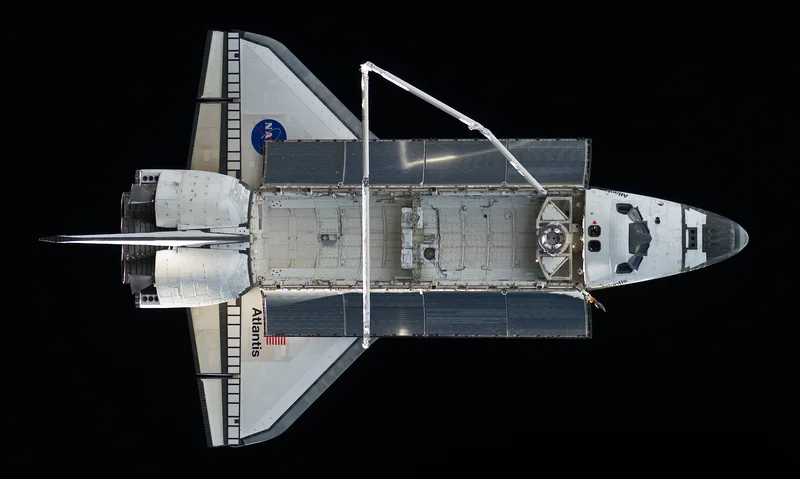
Space Shuttle Atlantis launched on mission STS-37 to deploy the Compton Gamma Ray Observatory. This sophisticated telescope would revolutionize our understanding of high-energy astrophysics.
The Compton Observatory detected gamma rays from distant cosmic phenomena previously invisible to astronomers. Its discoveries transformed scientific knowledge of black holes, neutron stars, and galactic evolution.
2010 – Discovery Mission to ISS
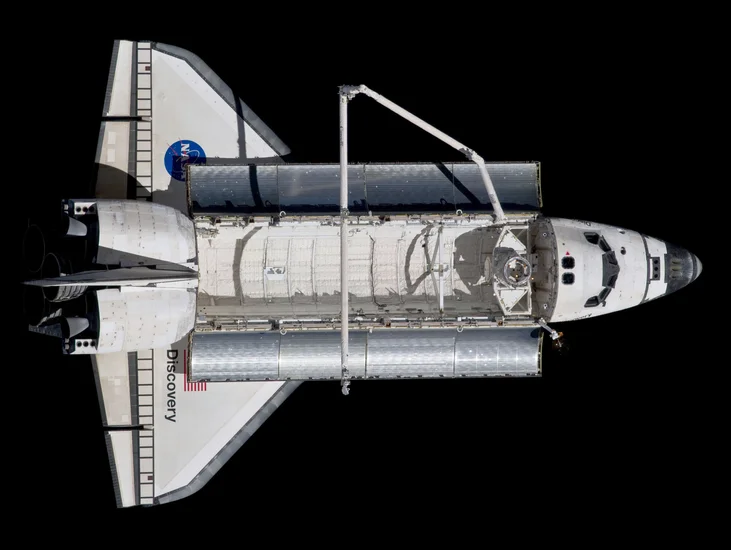
Space Shuttle Discovery launched on STS-131 to resupply the International Space Station. The mission delivered critical supplies and equipment to support ongoing scientific research in orbit.
This flight represented continued international cooperation in space exploration. The successful mission demonstrated the shuttle program’s vital role in maintaining the ISS.
Cultural and Arts Events on April 5
1974 – Stephen King’s Carrie Published

Stephen King’s debut novel Carrie was published for the first time with a modest print run of 30,000 copies. The supernatural horror story launched King’s legendary career in American literature.
This small first printing would become one of the most valuable collectibles in modern publishing. Carrie established King as the master of contemporary horror fiction.
1923 – George Herbert’s Death
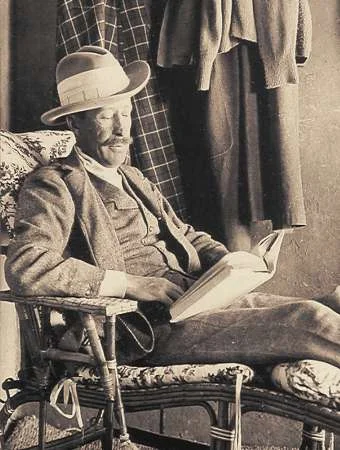
George Herbert, 5th Earl of Carnarvon, died under mysterious circumstances following the opening of Tutankhamun’s tomb. His death sparked legends of the “Curse of the Pharaohs” that captivated the public imagination.
As the financial backer of Howard Carter’s excavations, Carnarvon played a crucial role in Egyptology’s greatest discovery. His untimely death added an element of supernatural intrigue to the archaeological triumph.
1964 – Douglas MacArthur Passes Away

General Douglas MacArthur, one of America’s most controversial military leaders, died at age 84. His death marked the end of an era spanning both World Wars and the Korean conflict.
MacArthur’s complex legacy included brilliant Pacific victories and his dramatic dismissal by President Truman. His farewell address to Congress with its famous “old soldiers never die” speech became legendary.
Religious and Social Events on April 5
1922 – American Birth Control League Incorporated
The American Birth Control League, forerunner of Planned Parenthood, was officially incorporated on this date. This organization would become central to reproductive rights advocacy in America.
The league’s formation marked a turning point in women’s healthcare access. Its work laid the foundation for modern family planning services and reproductive freedom.
1975 – Chiang Kai-shek Dies

Chiang Kai-shek, longtime leader of the Republic of China, died at age 87. His death ended an era of authoritarian rule in Taiwan and began the island’s transition to democracy.
Chiang’s complex legacy included both his role in China’s resistance to Japanese invasion and his harsh martial law regime. His death paved the way for Taiwan’s eventual democratization.
1976 – Howard Hughes Dies

Eccentric billionaire Howard Hughes died in mysterious circumstances, ending one of America’s most enigmatic business careers. His death revealed the extent of his mental illness and reclusive lifestyle.
Hughes had been one of the world’s richest men, with interests spanning aviation, entertainment, and technology. His bizarre final years became the subject of countless books and films.
Business and Economic Events on April 5
1992 – Sam Walton Dies
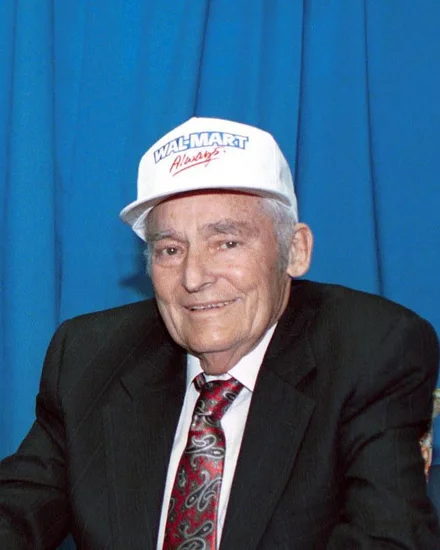
Sam Walton, founder of Walmart and Sam’s Club, died at age 74. His death marked the end of an era for the retail giant that revolutionized American shopping.
Walton’s business philosophy of everyday low prices transformed retail commerce nationwide. His legacy created the world’s largest retailer and changed how Americans shop.
2005 – Saul Bellow Dies
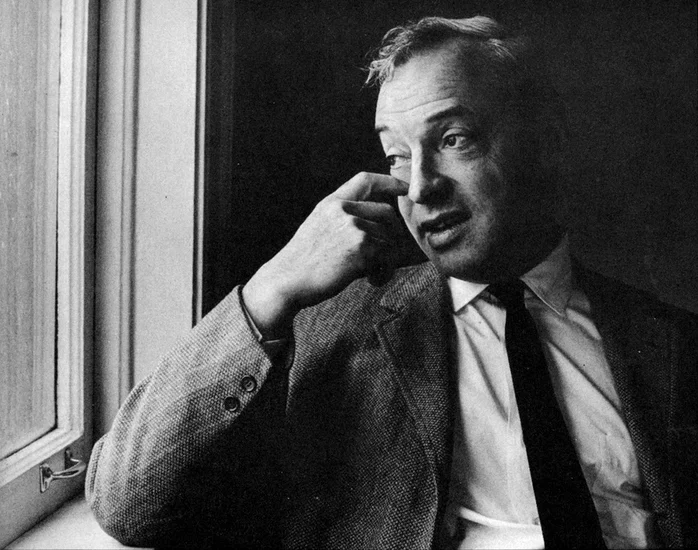
Nobel Prize-winning author Saul Bellow died at age 89, ending one of America’s most distinguished literary careers. His novels captured the immigrant experience and urban American life.
Bellow’s works including “The Adventures of Augie March” and “Herzog” defined post-war American literature. His death represented the loss of a towering figure in 20th-century fiction.
1999 – Libyan Suspects Surrendered
Two Libyans suspected of bringing down Pan Am Flight 103 were handed over for trial in the Netherlands. This diplomatic breakthrough ended years of international sanctions against Libya.
The handover represented a major victory for international justice and counter-terrorism efforts. The Lockerbie bombing case had become a symbol of the fight against international terrorism.
Transportation and Infrastructure on April 5
1910 – Transandine Railway Inaugurated

The Transandine Railway connecting Chile and Argentina was officially inaugurated after years of challenging construction. This engineering marvel crossed the treacherous Andes Mountains at extreme altitude.
The railway’s completion revolutionized trade and travel between the two South American nations. Its construction required innovative solutions to overcome harsh mountain conditions and extreme weather.
1998 – Akashi Kaikyō Bridge Opens
Japan’s Akashi Kaikyō Bridge opened to traffic, becoming the world’s longest suspension bridge span. This engineering achievement connected Honshu and Shikoku islands with unprecedented elegance.
The bridge’s construction required revolutionary techniques to withstand earthquakes and typhoons. Its opening marked a triumph of Japanese engineering and infrastructure development.
2007 – Cruise Ship Disaster
The cruise ship MS Sea Diamond struck a volcanic reef near Nea Kameni and sank the following day. Two passengers were never recovered in this tragic maritime accident.
The disaster highlighted ongoing safety concerns in the cruise industry. The incident prompted renewed scrutiny of navigation procedures in challenging Greek waters.
Sports and Recreation on April 5
1902 – Ibrox Stadium Disaster

A stand box collapsed at Ibrox Park in Glasgow during an international football match between Scotland and England. The tragic accident killed 25 spectators and injured over 500 others.
This disaster led to major improvements in stadium safety regulations across Britain. The tragedy remains one of the deadliest accidents in football history.
1936 – Tupelo-Gainesville Tornado
An F5 tornado devastated Tupelo, Mississippi, killing 233 people in one of America’s deadliest natural disasters. The massive twister destroyed entire neighborhoods and changed the city forever.
The tornado’s destruction led to improved weather forecasting and warning systems. This tragedy demonstrated the devastating power of severe weather in the American South.
1994 – Kurt Cobain Dies

Nirvana frontman Kurt Cobain died by suicide at age 27, ending one of rock music’s most influential careers. His death marked the symbolic end of the grunge movement.
Cobain’s struggles with fame and addiction reflected broader cultural issues of the 1990s. His death shocked the music world and left an indelible mark on popular culture.
Notable Births on April 5
1908 – Bette Davis Born

Legendary actress Bette Davis was born in Lowell, Massachusetts. Her fierce intensity and dramatic range would make her one of Hollywood’s greatest stars.
Davis revolutionized screen acting with her bold, uncompromising performances. Her career spanning five decades earned her ten Academy Award nominations and two wins.
1916 – Gregory Peck Born

Actor Gregory Peck was born in La Jolla, California. His noble bearing and moral authority made him one of Hollywood’s most respected leading men.
Peck’s iconic roles included Atticus Finch in “To Kill a Mockingbird,” earning him an Academy Award. His performances embodied American ideals of integrity and justice.
1937 – Colin Powell Born
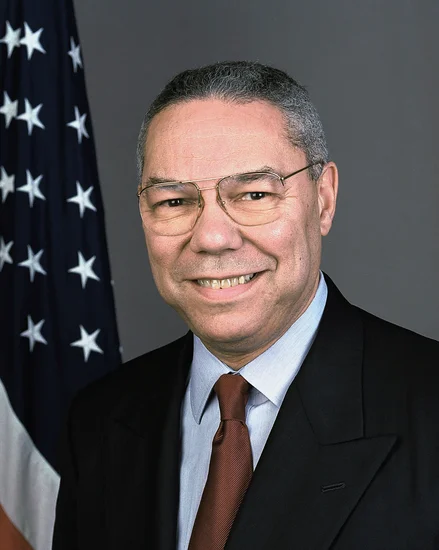
Military leader and statesman Colin Powell was born in New York City. He would become the first African American Secretary of State and Chairman of the Joint Chiefs.
Powell’s distinguished career broke racial barriers in American military and diplomatic service. His leadership during the Gulf War made him one of America’s most respected public figures.
1947 – Gloria Macapagal Arroyo Born

Future Philippine President Gloria Macapagal Arroyo was born in San Juan, Philippines. She would become the country’s second female president and serve for nine years.
Arroyo’s presidency was marked by economic growth and political controversy. Her administration faced numerous challenges including coup attempts and corruption allegations.
1955 – Akira Toriyama Born

Japanese manga artist Akira Toriyama was born in Nagoya, Japan. His creation of Dragon Ball would become one of the most influential manga series ever published.
Toriyama’s distinctive art style and storytelling revolutionized manga and anime worldwide. His work inspired countless artists and helped popularize Japanese comics globally.
Notable Deaths on April 5
1994 – Kurt Cobain Dies

Nirvana frontman Kurt Cobain died by suicide at age 27, ending one of rock music’s most influential careers. His death marked the symbolic end of the grunge movement.
Cobain’s struggles with fame and addiction reflected broader cultural issues of the 1990s. His death shocked the music world and left an indelible mark on popular culture.
2002 – Layne Staley Dies

Alice in Chains vocalist Layne Staley died of a drug overdose at age 34. His death marked the tragic end of one of grunge’s most distinctive voices.
Staley’s haunting vocals defined the Seattle sound of the 1990s. His struggles with addiction became emblematic of the dark side of rock stardom.
2008 – Charlton Heston Dies
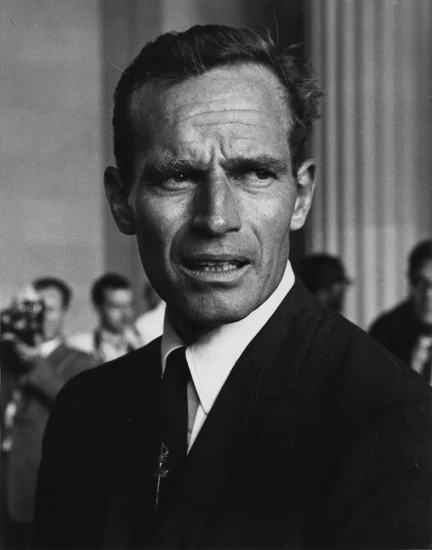
Academy Award-winning actor Charlton Heston died at age 84. His commanding presence graced epic films like “The Ten Commandments” and “Ben-Hur.”
Heston’s later years were marked by conservative political activism and gun rights advocacy. His death ended the career of one of Hollywood’s last great leading men.
2011 – Baruch Samuel Blumberg Dies

Nobel Prize-winning physician Baruch Samuel Blumberg died at age 85. His discovery of the hepatitis B virus and development of its vaccine saved millions of lives.
Blumberg’s medical breakthroughs represented one of the 20th century’s greatest public health achievements. His work demonstrated the power of basic research to transform human welfare.
Holidays and Observances on April 5
International Day of Conscience
The International Day of Conscience promotes peace, understanding, and reconciliation among nations and peoples. This observance encourages reflection on moral values and ethical behavior.
The day aims to foster dialogue between different cultures and belief systems. Its message of universal conscience resonates across religious and cultural boundaries.
National Maritime Day in India
India observes National Maritime Day commemorating the first voyage of SS Loyalty of the Scindia Steam Navigation Company in 1919. This day honors India’s maritime heritage and seafaring traditions.
The observance celebrates India’s connection to the sea and its importance to national commerce. Maritime Day recognizes the contributions of sailors and the shipping industry to Indian development.
Cold Food Festival

The Cold Food Festival is celebrated in China on April 5 during non-leap years. This traditional observance honors ancestors and marks the arrival of spring.
The festival involves eating cold foods and visiting ancestral graves. This ancient tradition connects modern Chinese people with their cultural heritage and family history.
